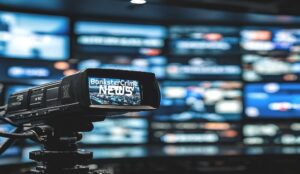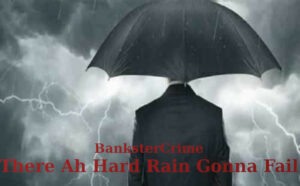Jeremiah 30:7 says, “That day is great so that none is like it.” The only time period that fits this description is the period of the Tribulation. This time is unparalleled in history.
Jesus described the Tribulation using some of the same imagery as Jeremiah. In Matthew 24:6-8, He stated that the appearance of false christs, wars, and rumors of wars, famines, and earthquakes are “the beginning of birth pains.”

When we think of “economic collapse” our imaginations usually lead us immediately to the desperation we’ve witnessed in places like Venezuela or Greece. We think of starvation, a complete lack of medical care, and waves of suicide by people who simply can’t survive. We imagine an apocalyptic societal breakdown that is immediately visible.
Here in America, I suspect the collapse is going to look a lot different than it has in these other countries…at least, at first. And in my description, it’s entirely likely you’ll see that many of these signs have been happening all around us for years.
It will be gradual.
The thing with collapses that we see in the media is that we are seeing the end results of events that have been slowly declining for years. Venezuela was one of the wealthiest countries in the world back until the mid-1980s, due to their rich oil reserves. Then oil prices collapsed and their fall began. It was actually several decades though before it was truly evident that the country was in trouble.
Preparedness bloggers here have been sounding the warning bell since 2008 (at least) when our economy went into a recession. While the US managed to dig its way out of that to at least an illusion of renewed prosperity, it’s questionable how much of that return was real and how much of it was propaganda.
It’s unlikely that we’ll see just one event that says clearly to everyone, “Hey, our economy has collapsed. The Great Depression 2.0 has arrived, today, January 14, 2019, due to X event.”
Instead, we’ll continue to see signs like a lack of full-time jobs with benefits, growing student and consumer debt, more people who can’t afford rent and food, and more stores closing their doors forever in an ongoing retail apocalypse.
Because of the ready availability of credit cards and loans, things don’t seem that bad. People are still shopping for frivolous things. They’re still spending billions on Christmas. They’re still eating out at restaurants.
But just because “money” is being spent does not mean that people are okay financially.
It will seem like it’s just individual families having a hard time.
The way things are going down in America, it doesn’t seem like we’re facing a national crisis. Consumers are consuming. People are working – just look at those “jobs” numbers. Folks are still having barbecues with the neighbors, hosting extravagant holiday get-togethers, and avidly following the football season.
But the American dream isn’t actually that dreamy. Because beneath all the trappings of our pleasant lives, people are right on the verge of a crisis.
40% of Americans could not handle an unexpected expense of only $400 without having to sell something they own. 78% of Americans are living paycheck to paycheck. That means that only one missed paycheck will be a financial disaster for the majority of Americans.
And when that missed paycheck or unexpected expense comes, people will completely blame themselves. They’ll silently feel like failures and not realize that the entire system is crumbling all around them. They will believe it is only their family, due to their own bad decisions, that is suffering.
Sure, we could all make better choices from time to time. We could skip those vacations or spend less on the kids at Christmas or go on the beans-and-rice-and-apples diet. We could eschew credit cards, live beneath our means, and go full-Spartan with our lifestyles.
Sometimes the money problems are out of our hands.
But even with the very best personal economic decisions, a lot of things are out of our hands. What if a family member becomes seriously ill, with heaven forbid, a heart attack or cancer? Even with health insurance (which a growing number of middle-class families, mine included, cannot afford), the out of pocket costs will be astronomical. And that’s not even factoring in the long-term loss of the sick person’s income. Total financial disaster and it’s not something that can be avoided.
Or what if your vehicle is totaled by an uninsured driver? Even when your own insurance covers what you’ve paid off on your vehicle, what if you just break even and then can’t afford another vehicle? Then you can’t get to work…then you can’t pay your bills…then, again, a disaster not of your own making has struck.
Any time you see a family suffering financially, you must understand that very few of us are immune to money problems. We all handle these financial catastrophes differently and we all use the skills and talents we have to deal with them. Some of us are more fortunate than others – we’re able to pick up second and third jobs. We’re able to slash our expenses more relentlessly. Maybe we live in areas that are ripe with employment opportunities, instead of economically depressed small towns. We may not have poor health or sick children who require 24-hour care and supervision.
Heck – once you add in children at all, you’re paying for daycare every time you go to work. I know that when my kids were little and I was a single mom, I had to take a second job just to cover my daycare costs, which, in the summer, were as much as my rent. I worked seven days a week for years and lost so much time with my children that it broke my heart.
It’s really easy to look down on others who are having a hard time with money but always remember that just one crisis could put each of us in that place. We’re living in a system that is designed to put us in that place.
The divide will get bigger.
In the United States, we’re watching a disappearing act that unfortunately is no illusion. We’re watching the middle class vanish. Remember when it was common for just about everyone to have trappings like houses, two cars in the driveway, and kids who play baseball in the summer and take gymnastics lessons in the winter? Lifestyles that used to put us firmly right in the middle class are harder and harder to achieve. And it isn’t just that Americans are lazy and addicted to spending money they don’t have.
The biggest blow I can think of to the middle class was the inappropriately named Affordable Care Act (Obamacare). While that helped a lot of people who couldn’t afford any healthcare at all, with subsidies and low-to-no deductibles, for the rest of us who had a reasonable plan before, it was financially apocalyptic. There was story after story of families paying thousands of dollars per month for shoddy care that didn’t kick in until $10,000 had been spent out of pocket. This took formerly middle-class families and pushed them into the poverty level. But because their ridiculous monthly insurance payments weren’t write-offs, they couldn’t get subsidized. Talk about irony – the ACA impoverished people and then wouldn’t cover their healthcare.
When I talk about the divide, I’m not referring to so-called “income inequality.” That will always exist because we all have different skills, and different skills are worth differing amounts of money.
I’m talking about a divide in lifestyle. I’m talking about how people who work often two and three jobs can barely manage to survive. It’s a real problem when all we do is work and we can’t spend time raising our children to be good and productive members of society.
Don’t get me wrong – rich folks can spend their money however they want. But at some point, their glaring frivolity is going to paint a Marie-Antoinette-style target on their backs. Regular people who could pay for a year of living comfortably with one of the Birkin bags in their collections of $20,000 purses are getting increasingly ticked off of the way things are going in this country.
Eventually, things that are normal will become luxuries.
While things are tough, even some of our poorest citizens still have it better than 2/3 of the world’s population. Most of us have roofs over our heads, heat in the winter, running water, food, and electricity to run our refrigerators.
But that could change.
As our economy plummets and our national debt soars, we could see the things that we all take for granted today could become luxuries tomorrow. Imagine if the ordinary trappings that we’ve always had became as out of reach for most of us as a Lamborghini in the driveway.
What if only rich people could afford electricity? What about heat? What about running water? What if that divide between the rich and the poor could be delineated by who had the ability to turn on a light at the flick of a switch and who did not?
Many people worry about an event like a solar flare that would wipe out electrical power, casting us back about 200 years. We’d have no refrigeration, no transportation, no climate control, and no lights. But in that situation, we’d all be in the same boat. No matter how wealthy you are, any unprotected electrical items would still be useless.
What if that’s what the economic collapse looks like?
What if the real threat was simply that no one could afford to pay the electric bill? What if prices escalated to the point that it was a choice between food and electricity? What if, home by home, the lights went out across America?
And what about running water? A few years back, in Jefferson County, Alabama, the price of water quadrupled, making monthly water bills over $300.
Jefferson County in Alabama is the state’s most populous county and also its poorest. One of the poorest of those poor areas is Birmingham, Jefferson County’s largest city. Here water and sewerage bills have quadrupled in the last 15 years and with combined sewerage and water bills coming in at around $300 a month, this leaves the same amount out of the average social security cheque of $600 a month to cover everything else, food, clothing, and all other utilities. Low paid workers, of which there are many fare no better.
Many people have opted to buy drums of water from petrol stations rather than pay their ever increasing bills. They use these drums of water for drinking, washing and in their portable toilets which can be seen dotting back yards across the area, the modern version of the outhouse. They pay a fee to a sanitation company to remove the waste. It’s cheaper than letting the city take care of it. (source)
So imagine if this kind of thing became even more widespread. What if you had to be rich to have electricity and running water?
This is how it could happen.
What if it’s just an incremental crumbling of our way of life, one household at a time?
No bank runs. No government confiscation of resources. No dramatic event that we can all point to and say, “This is how the American economy was destroyed on (pick a date).”
Instead, it becomes harder and harder to pay your necessary bills. You go deeper and deeper into debt trying to pay for things like medical bills and food. Your job, if you keep it, doesn’t provide increases in pay to match the increases in the costs of living because the person running the business is just trying to survive too.
Then you re-evaluate what necessities are. You think about what you can workaround. Which is more important? Medicine or childcare? Running water or electricity? Rent or food?
This is the future for which we should be preparing.
Stop expecting some huge event and look at the decline that’s already happening all around you. Think about your options in a world where only rich people can afford electricity and running water and food all at the same time.
- Perhaps you can plan for an increasingly low-tech world.
- Maybe you can figure out ways to acquire and harvest food.
- Now is the time to build a stockpile of food to get you through some rough spots.
- You can start living beneath your means
- You can learn to make things from scratch instead of buying them
Maybe the epic disaster everyone has been preparing for is slowing happening right now. It isn’t really that farfetched, is it?
Maybe the disaster is the crumbling of our First World lifestyle due to unsustainable debt and consumerism. Maybe it’s how they roll out the socialist utopia that control freaks all seem to desire. If everyone is desperate to survive or to regain their former luxuries, how hard would it be to manipulate them into a comfortable control grid?
If you want to maintain your independence, then self-reliance is survival.
What do you think?
How could you see an economic collapse in the United States of America actually going down? Is this something you’d like to see more articles (or even a book) about? Source

StevieRay Hansen
Editor, Bankster Crime
MY MISSION IS NOT TO CONVINCE YOU, ONLY TO INFORM…
#Fraud #Banks #Money #Corruption #Bankers
“Have I therefore become your enemy by telling you the truth?”


![]()




